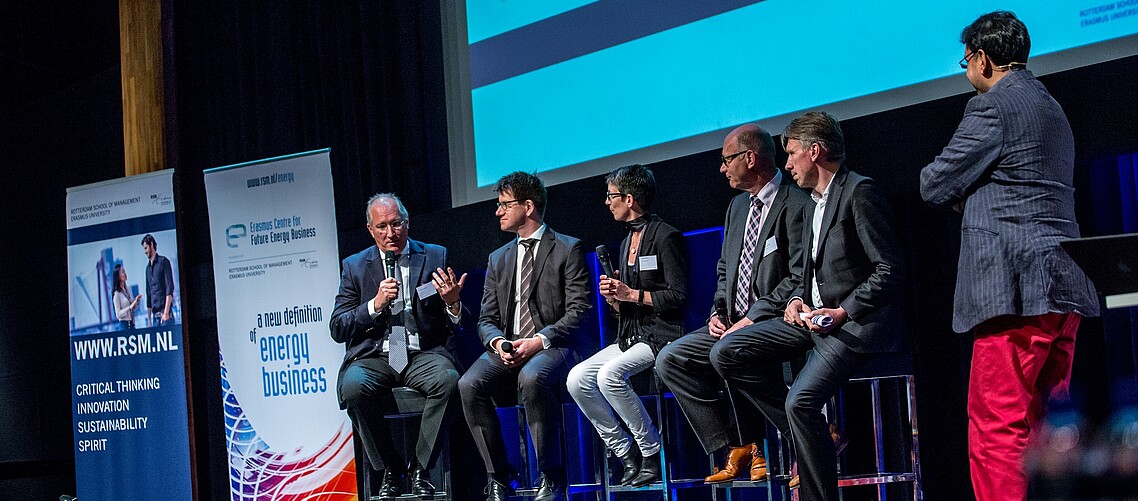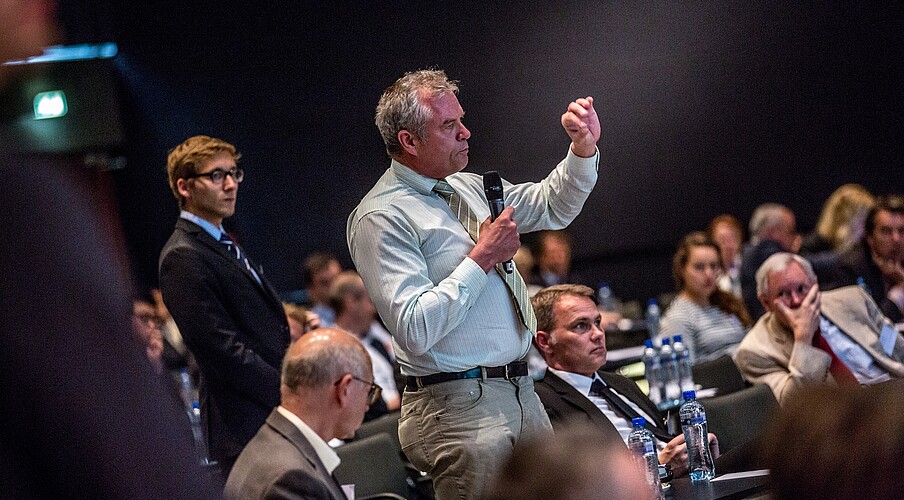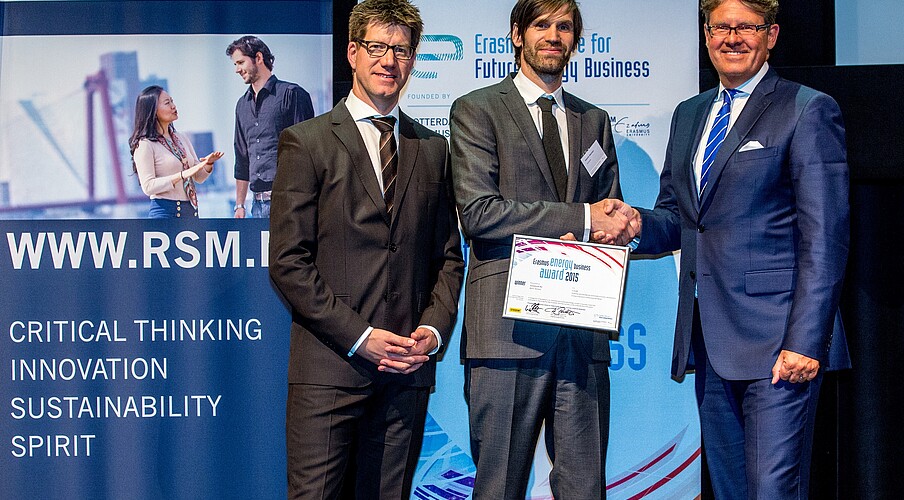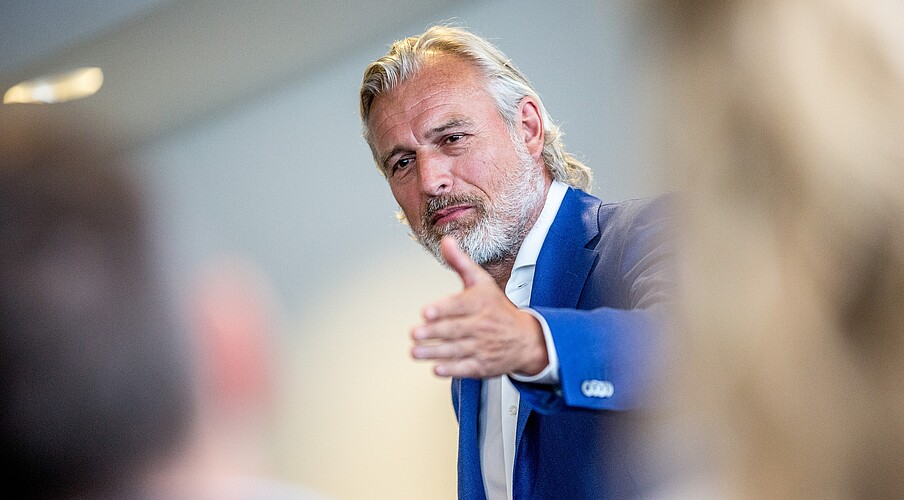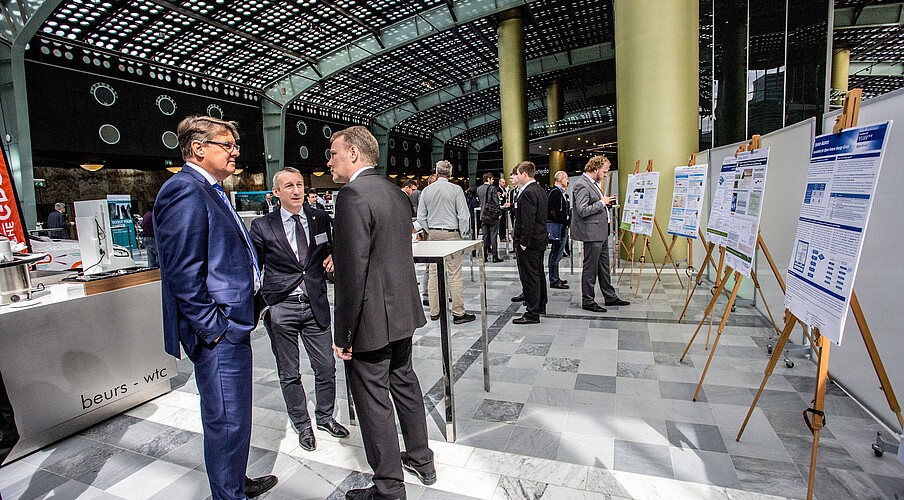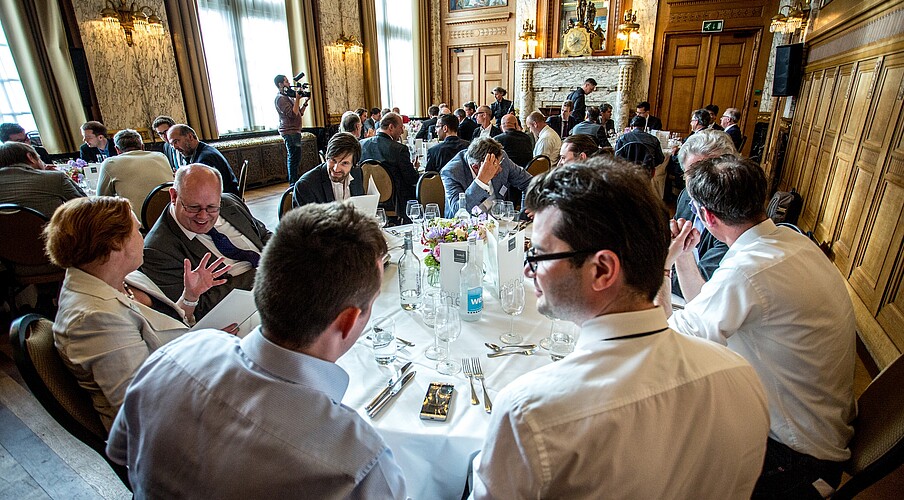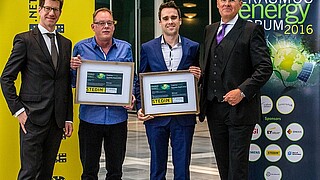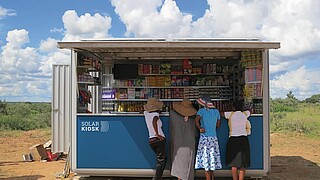The annual Erasmus Energy Forum takes an international and multi-stakeholder perspective; this year it focused on the transition to decentralised sustainable energy in ports and cities, an area of research that’s a speciality of the Erasmus Centre for Future Energy Business (ECFEB).
The Erasmus Energy Forum is a two-day event. Day 1, Business Day took place at the World Trade Center in Rotterdam, and Day 2, Science Day was held on RSM’s Woudestein campus at Erasmus University Rotterdam.
Speakers represented the automotive industry, energy producers, energy distributors, the port and the city, politics and academia, and consumers. They included Yukihiro Sonoda from Toyota Motor Europe ; Stephan Reimelt of GE Europe; Ewald Breunesse of Shell Netherlands; Mayor of Rotterdam Ahmed Aboutaleb, Allard Castelein of the Port of Rotterdam Authority, Colette Maloney from the Smart Cities and Sustainability Unit of the European Commission; and Peter Molengraaf of grid operator Alliander, who also chairs the Dutch association representing network operators. The consumers’ view was represented by trend-watcher Vincent Everts.
Consumer resistance
Several speakers spoke about consumers’ resistance to changing their behaviour; it’s proving to be one of the challenges for industries developing the new energy landscape. The call for regulators and industry to ‘do something now’ was also a message from several of the event’s speakers.
Supporting future technologies
But the city and port support each other in any way they can, with a versatile and innovative infrastructure that already re-uses waste energy from the port in several city energy projects. Industries based in the port are also investing in systems that support future energy technologies on land and at sea. A feature of the future energy landscape will certainly be smart sustainable energy markets; they are already in use in developed cities and nations – but there’s a risk that that only developed nations will benefit from their use, said Professor Wolf Ketter, director of the ECFEB. Further digitalisation of the energy network through standardisation and developing what already exists is needed to enable smart grids and smart markets to fulfil their potential. Colette Maloney of the EC said the key to success is constructive co-operation between energy and ICT sectors.
Underway, but hindered by regulation
According to the government of the Netherlands, the transition is well underway and is producing results, with local and international agreements and developments in security of supply, market systems and energy efficiency. But across Europe, high levels of regulation and fragmentation of the markets are preventing the energy industry from fulfilling its potential make the transition to decentralised sustainable energy; there was a call from Stephan Reimelt of GE Europe for aspirational leadership in the European Union.
New energy technologies
Persuading consumers to use – and contribute to the cost – of new energy technologies was debated. Solar power, heat pumps and electrical storage are customers’ favourite new energy technologies, and grid operators are preparing for the grid to be used as a storage or exchange facility; in fact there is potential for billions of devices to contribute to the grid, but that requires more open standards.
Progress is not smooth
Companies such as Toyota are running large-scale pilot projects to demonstrate how new technologies can be integrated for even greater benefit. However, progress is not smooth. One speaker said it takes longer to put a wind turbine ‘in the ground’ now than it did ten years ago because of planning constraints, and some renewable energy producers are frustrated at the lack of leadership in persuading everyone to make the switch to sustainable energy.
It was predicted that as a means of clean, personal transport, electric vehicles will become cheaper and more efficient, with great range, thanks to improved batteries. It would appear that the lack of a national fast-charging network is holding them back, but once they become more mainstream, they can become a part of national smart grids.
The 2015 Erasmus Energy Business Award, presented during the Erasmus Energy Forum, went to Berlin-based company Solarkiosk, for its E-HUBB portable solar-powered modular building unit that provides energy and accommodation in African countries. The judges said it is a well-engineered product with ‘good product development targeted at providing energy in areas that matter’ and commended the way it involves local people and uses a local business model.
Business Day concluded with a networking dinner in Rotterdam’s historic Stadhuis (city hall), with after-dinner speaker Christ Faulkner of Breitling Energy. Day two of the Energy Forum was Science Day to engage academic researchers in a dialogue to examine the future of energy business. A special focus was given to energy informatics fostering energy efficiency in city and port environments. In-depth scientific work and the results of research from research institutes worldwide were presented by academic and industry partners.
You can read the detailed report of the Erasmus Energy Forum’s Business Day here. A report of Science Day is in preparation and will be online soon.
